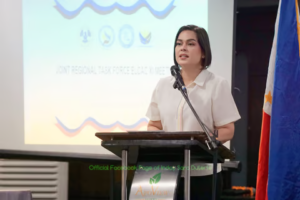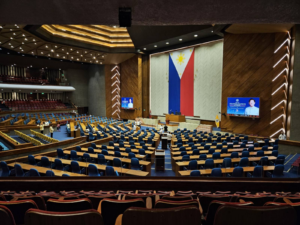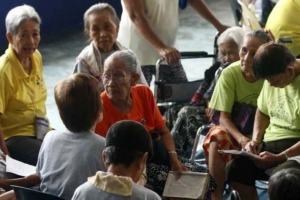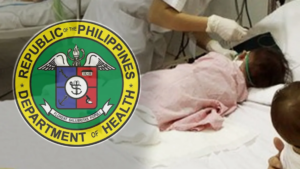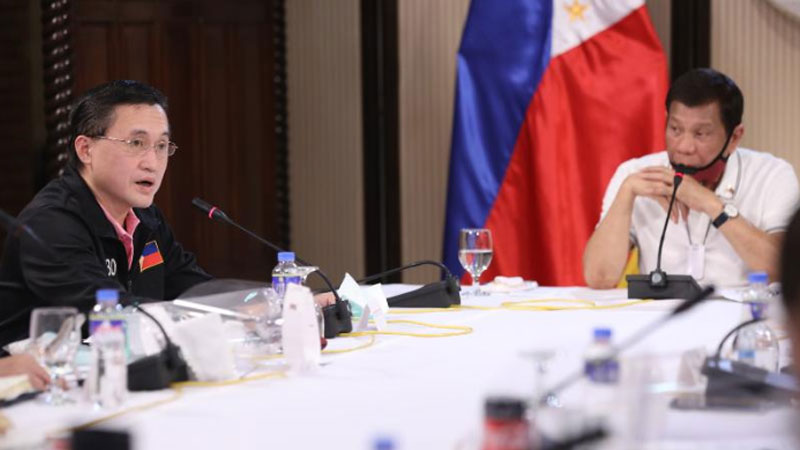
ARE zombies real? In the past two years, movies of dead people going back to life seemed to make more money than straight ones. The Korean gory blockbuster “Train to Busan” made an international fame like many other dead-to-life sequels of “Dr. Frankenstein,” “The Day of the Living Dead,” “Count Drakula,” “Diary of a Vampire,” and many others. They may gross a lot in theater sales but their plot is the same and simple—dead people come to life, and the purpose is to terrorize the living.
Films and laws (an awkward comparison, isn’t it?) may have the same plot but they differ in purpose. Some laws and programs are back to life when the opportune time comes. Others need a push, usually a serious one like the Covid-19 pandemic that breaks all the hell out of us, to perform its purpose.
A case in point is the proposed bill of neophyte Senator Christopher Lawrence “Bong” Go providing for a “Balik Probinsya, Bagong Pag-asa (BP2) Program,” which aims to develop the provinces and countryside and to decongest the country’s metropolis like Metro Manila. President Rodrigo R. Duterte had issued an executive order to “start the ball rolling”, so to speak. And a bill is now pending in congress to institutionalize it. The triggering factors for its passage are the glitches that transpired during the government’s distribution of the Social Amelioration Program to some 18 million marginalized Filipinos.
But the idea of bringing back the people to their home provinces for good is not entirely new. The Department of Social Welfare and Development (DSWD) has a “zombie project component” called Balik sa Probinsya under the Crisis Intervention Program, particularly on their Assistance to Individuals in Crisis Situation (AICS). However, services under this program is limited to giving transportation allowance and “pabaon” to returning individuals and their families.
Another “zombie bill” was authored by Senator Richard “Dick” Gordon in 2018, which is very similar to Sen. Bong Go’s present proposed BP2 Program. It was called the Regional Investment and Infrastructure Coordinating Hub (RICH) in Central Luzon Act of 2018, which reached to the third reading in congress but was eventually vetoed by President Duterte in March 2019 citing several provisions which would “pose substantial risks to the country and are thus inimical to its economic growth.”
Like that BP2 Program of Sen. Go, albeit small in scope, the proposed RICH in Central Luzon Act of 2018 also aims to bring in jobs and capital to the region and help decongest Metro Manila by offering tax incentives to investors. However, the Department of Finance blocked the passage of the said bill for fear that such law might “significantly narrows our tax base with its mandated incentives applicable to registered enterprises in an entire region.”
Sen. Gordon might be hurt by the veto of the president, but he was happy to co-sponsor the BP2 bill of Sen. Go in the senate because after all, they had the same purpose of bringing the infrastructure and economic development to the provinces.
Another “zombie law” that is compatible to the BP2 Program initiative of the Duterte Administration is the Balik Scientist Program, which is under the “Balik Scientist Act” signed into law by President Duterte in 2018 to reverse brain drain in the country.
Actually this is an old program under the auspices of the Department of Science and Technology (DOST) that was established in 1975 but was only institutionalized as a law in 2018. Records from the DOST show that from 2007, the program has paved the return of more than 200 Balik Scientists, some of whom decided to permanently reside in the Philippines.
It is indeed very hard to convince successful professionals abroad to leave their high paying jobs and comfortable lives there to return to the country to face the stress of community “third-world” living. But there are some who find pleasure in helping the country and Filipino people.
In the fight against Covid-19 pandemic here are some names of Balik Scientists who are in the front line: Dr. Joseph Adrian Buensalido, who currently an infectious diseases and internal medicine consultant in some hospitals in Manila; Dr. Doralyn Dalisay, who is currently assisting in assessing the capacities of the Western Visayas Medical Center; Dr. Reynaldo Garcia, who now heads the Disease Molecular Biology and Epigenetics Laboratory of UP Diliman; Dr. Harvy Joy Liwanag, who is doing projections for DOH on the health workforce requirements; Dr. Jonel Saludes, who is also assisting the capacities of the Western Visayas Medical Center; Dr. Edsel Maurice Salvaña, who is now part of the Technical Advisory Group of the DOH and IATF; and, Dr. Raymod Francis Sarmiento, who is helping the DOH in Covid-19 projections.Can we see other Balik Scientists in agriculture, engineering, social work, information technology, and other fields too to help the BP2 Program and other development initiatives of the government? Let’s hope and pray. Que sera, sera!






